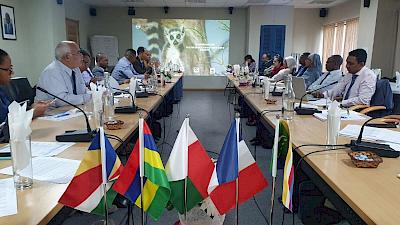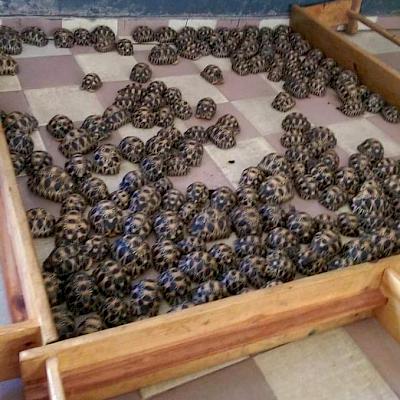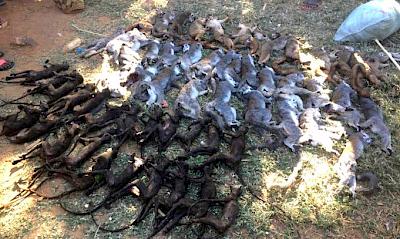Protecting nature and livelihoods in Indian Ocean by tackling money laundering buried within illegal wildlife trade
Madagascar is one of the most biodiverse countries in the world, leading to pressure to illegally export its precious resources, including timber, tortoises, lemurs and medicinal plants.
Other West Indian Ocean countries, given their dispersed geography and location, face major threats from illegal trade of their natural resources, coupled with illegal drug trade convergence using similar smuggling routes.

Worldwide, illegal wildlife trade is estimated to be worth between $7bn and $23bn per year. With inherent links between wildlife crime and financial corruption, protecting nature and the local livelihoods it supports, must be viewed from a financial perspective.
Last week in Mauritius, members of law enforcement teams from all Indian Ocean Commission (IOC) member states - Comoros, France (Réunion), Madagascar, Mauritius, Seychelles - met to agree action and collaboration to crack down on money-laundering by wildlife traffickers.
Jointly organized by the IOC and TRAFFIC, under the Countering Corruption and Wildlife Trafficking project, funded by USAID and led by the World Wild Fund for Nature, the two-day workshop comprised more than 30 regional officers from gendarmerie, customs, police, environment authorities, prosecutors, and intelligence agencies.
Examples of illegal wildlife trafficking in the Indian Ocean
In 2019, Eddy Maminirina was arrested in Madagascar for his connection to illegal rosewood trade. It is alleged that 100 million Malagasy Ariary ($22,000) was laundered from the illegal export of rosewood, illustrating the importance of financial investigations in tackling IWT.

Recent cases illustrate the need for cooperation between IOC member states. For example, a significant incident involving the seizure in Comoros of 400 tortoises from Madagascar, highlights the transnational nature of wildlife trafficking and the critical need for collaborative efforts to address it.
Money laundering and wildlife trafficking
As with money earned from other crimes, wildlife traffickers want to hide the true sources of earnings coming from sales of endangered plants or animals. They will often spend – launder - this money, preferably in untraceable cash, on lucrative yet legitimate assets such as cars, jewellery or housing which are easily further traded and where controls are lax.
As anyone who watches detective films will know, you catch criminals by gathering information on their activities."
Hanitra Ralivololona, TRAFFIC Legal Officer“To stop our precious plants and animals being pushed to extinction through illegal trade, we are bringing together all those who work in law enforcement in our region, so we can piece together the jigsaw revealing massive-scale money-laundering happening behind wildlife trafficking in our region.”
She added: “There needs to be more collaboration between Indian Ocean member countries to identify illicit assets and dismantle trafficking networks. Tackling this transnational organized crime requires a networked approach.”

Despite the enormous financial implications, there have been very few financial investigations into the illicit financial flows associated with IWT in the Indian Ocean countries – though this is now expected to change as these countries see this as a priority and have strengthened their anti-money laundering capacity.
Outcomes from the workshop:
-
Follow the Money: By tracking financial flows, authorities can identify and arrest not only the low-level operatives but also the financiers and masterminds behind the trade.
-
Concrete Actions: Following the roundtable, we expect to see concrete actions such as parallel financial investigations for any illegal wildlife trade offenses and the creation of an information exchange network between countries.
-
WhatsApp Group: A WhatsApp group has been created to facilitate immediate communication and information exchange. This platform will help share information on trafficking routes and laundering methods.
-
Capacity Building: Capacity building is necessary for law enforcement agencies in these countries to effectively identify protected species, conduct proactive financial investigations, and enhance regional cooperation.
-
Protocol of Cooperation: Establishing a memorandum of understanding for joint investigations and regional cooperation will be critical in tackling this issue effectively.
